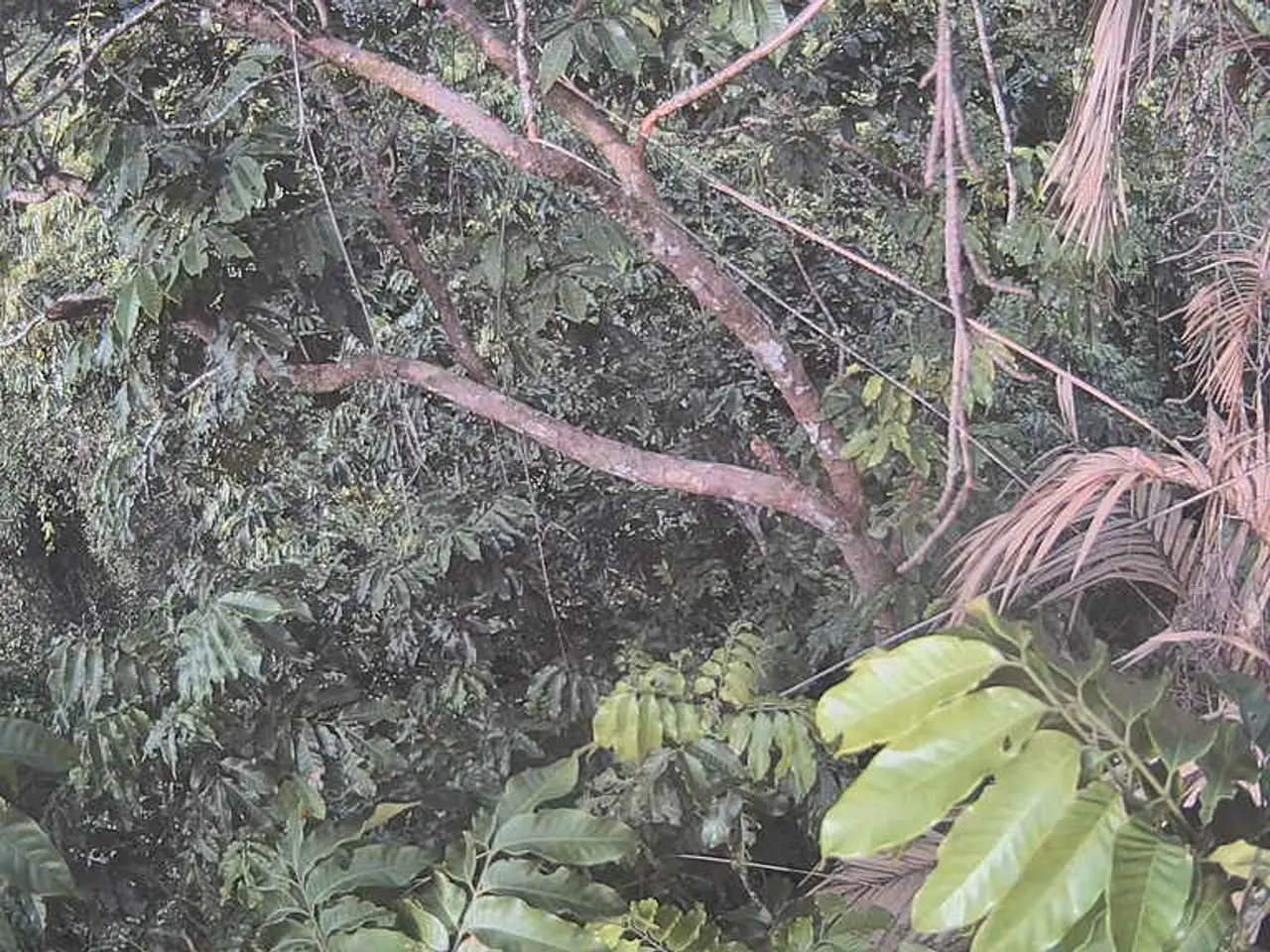Tualang Trees
Exploring the Native Medicinal Plants: Tualang and Tongkat Ali in the Wild Plant Life of Peninsular Malaysia
The Tualang tree, a giant of Southeast Asia's forests reaching heights of up to 80 meters, plays a significant role in Peninsular Malaysia. Historically, these trees have been home to colonies of Tualang honey bees (Apis dorsata) and have been cared for by local honey hunters for centuries. This traditional practice, both culturally important and economically valuable, continues today, with the honey produced highly prized for its quality and health benefits.
Tualang honey is not only a local delicacy but also an international commodity, celebrated for its unique flavor and remarkable medicinal properties. Today, it is harvested sustainably, promoting eco-tourism and supporting local communities. The trees themselves provide a crucial ecological role in the rainforests, offering habitat for various species and contributing to biodiversity.
Tongkat Ali Plants
Tongkat Ali, scientifically known as Eurycoma longifolia, is another plant of significance in Malaysia. For centuries, it has been used as a traditional medicinal plant, particularly as an aphrodisiac and to enhance male fertility. It is also used in traditional medicine to treat various ailments, including fever and infections.
In modern times, Tongkat Ali has found its way into health food stores and scientific journals. It is commercially cultivated and used in supplements due to its purported health benefits, including improving libido and physical performance. It is also studied for its potential anti-inflammatory and antioxidant properties, contributing to its growing demand in the global health supplement market.
The Orang Asli, the indigenous people of Malaysia, are the guardians of the nation's herbal wisdom, with both Tualang trees and Tongkat Ali plants playing integral roles in their culture and economy. However, these vital resources face growing threats from deforestation, illegal logging, and habitat loss. Conservationists and local communities are working together to protect these resources, promoting sustainable harvesting, reforestation, and education.
Wild harvesting of Tongkat Ali, driven by global demand, threatens to deplete wild populations. Overharvesting could potentially lead to the loss of traditional knowledge and economic opportunities for the Orang Asli. Therefore, it is crucial to ensure that these practices are carried out sustainably to preserve these valuable resources for future generations.
The wild gardens of Peninsular Malaysia offer lessons about the value of biodiversity, the importance of balance, and the wisdom of living in harmony with nature. The traditional use of Tualang trees and Tongkat Ali plants not only supports local communities but also contributes to global markets, making them integral components of both local and international health and wellness industries.
- Research into Tualang trees has revealed potential applications beyond honey, such as in the development of biofuels due to their high energy content, further emphasizing their importance for sustainability.
- The health-and-wellness industry is showing growing interest in Tongkat Ali plants, with some promoting its use as a lifestyle supplement for boosting immunity and combating stress.
- In addition to their cultural significance, Tualang trees act as natural carbon sinks, helping to combat climate change and contribute to the overall health of rainforests.
- As part of home-and-garden practices, Tongkat Ali plants can be grown organically, providing a sustainable alternative to large-scale cultivation while also serving as a source of income for local communities.
- The conservation of both Tualang trees and Tongkat Ali plants goes hand in hand with the preservation of the rainforests, supporting the overall goal of maintaining biodiversity and promoting a healthy and balanced ecosystem.




